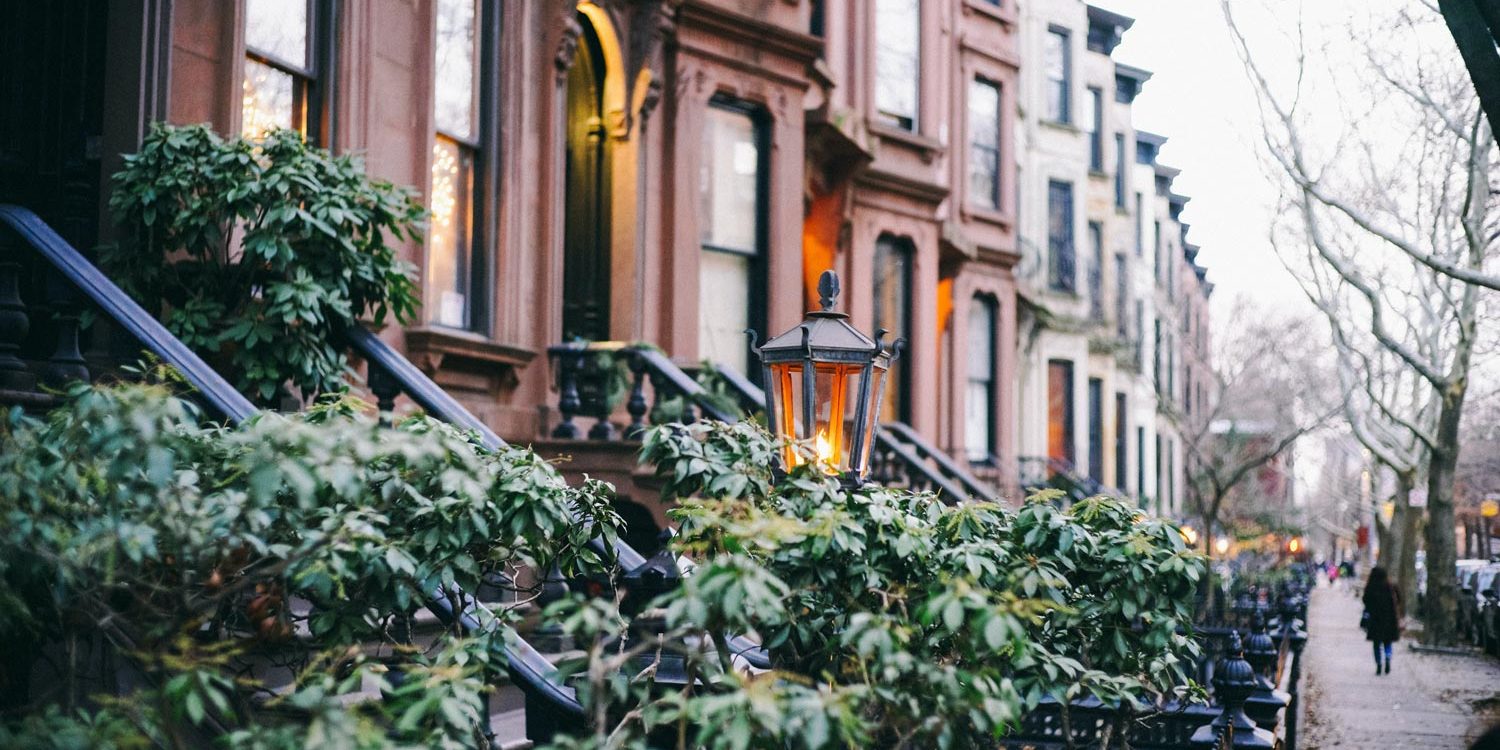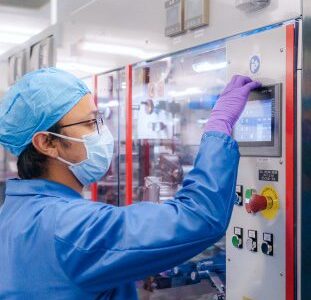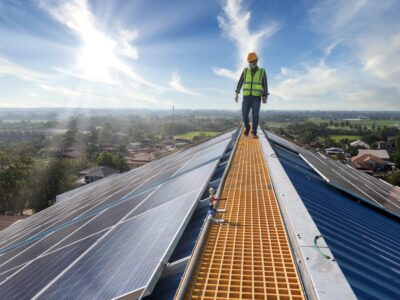The world’s earliest streetlights were very eco-friendly, if potentially dangerous. According to Brandon Industries, they first appeared in Peking, China, around 500 B.C., and featured bamboo piping and natural gas vents to create burning torches. A couple of thousand years later, gas-burning fixtures were used to light streets in cities such as London and Paris.
The first electric-powered streetlights showed up in the late 1870s and have since become the standard the world over. Now one company has come full circle by using nature to help illuminate our streets.

Photo Courtesy Brandon Industries
That company is Streetleaf, a Tampa, FL-based solar lighting startup whose mission is to power more than 55 million streetlights with renewable energy.
In June, Streetleaf announced the launch of a new product line of solar streetlights that don’t require electrical wiring and can be installed in less than 15 minutes.
The goal is to provide a low-cost, low-maintenance alternative not powered by the grid.
“We are delighted to bring an environmentally-friendly solution to such a vital aspect of civic infrastructure,” Kartik Goyani, Streetleaf founder, said in a press release. “Our solar streetlights are a step forward to re-engineering climate-forward communities.”
The company’s products use solar panels and batteries to store and convert sun-powered energy into electricity. They feature smart sensors that “automatically adjust the brightness and duration of the light based on ambient conditions and traffic flow,” according to the press release. The streetlights also have a remote-control system that lets Streetleaf monitor and manage the performance and status of each unit.

Photo Courtesy Streetleaf
Streetleaf touts several benefits of its products over conventional streetlights, including the following:
- Lower upfront and maintenance costs
- Reduced energy consumption and carbon footprint
- Quick installation
- Enhanced safety and security
- Improved aesthetics and visibility
At least one Florida community has already seen a tangible benefit from Streetleaf’s lights, Fast Company reported. That community is located within North Fort Myers, which suffered widespread power outages for five days after Hurricane Ian hit in 2022. But one 11-block neighborhood’s streetlights came on because they were powered by Streetleaf’s solar panels instead of the municipal grid.
“They stayed on the entire time, even when the community was in darkness,” Liam Ryan, a manager at Streetleaf, told Fast Company.
Streetleaf was spun out of a development company that wanted to install solar streetlights for one of its projects but couldn’t find suitable options, according to Fast Company.
“We talked to other solar light companies and found that most of them were what we call integrators — they’re just buying a solar panel, a car battery, and a pole,” Ryan said. “Nobody had done hundreds or thousands of installs at a time.”

Photo Courtesy Streetleaf
Rather than continue looking for third-party options, Streetleaf developed lights using solar panels, LEDs, batteries, and smart sensors.
“Our community infrastructure relies too heavily on traditional energy,” Streetleaf said on its website. “We saw an opportunity to change that in an industry virtually untouched by innovation and technology.”
As of June, the company says it has installed more than 4,500 solar streetlights across the United States. It has also planted more than 4,500 tandem trees as part of Streetleaf’s carbon-neutral initiative while removing 1.5 million pounds of carbon dioxide from the atmosphere.

Photo Courtesy Streetleaf
According to Fast Company, because Streetleaf’s lights aren’t connected to the grid, they can run directly on DC power. That’s the type of energy produced by solar panels. The company’s current design works best in sunny climates, but it can potentially work anywhere with a larger battery.
“Our goal is to have every streetlight in the U.S. be solar-powered,” Ryan said.





